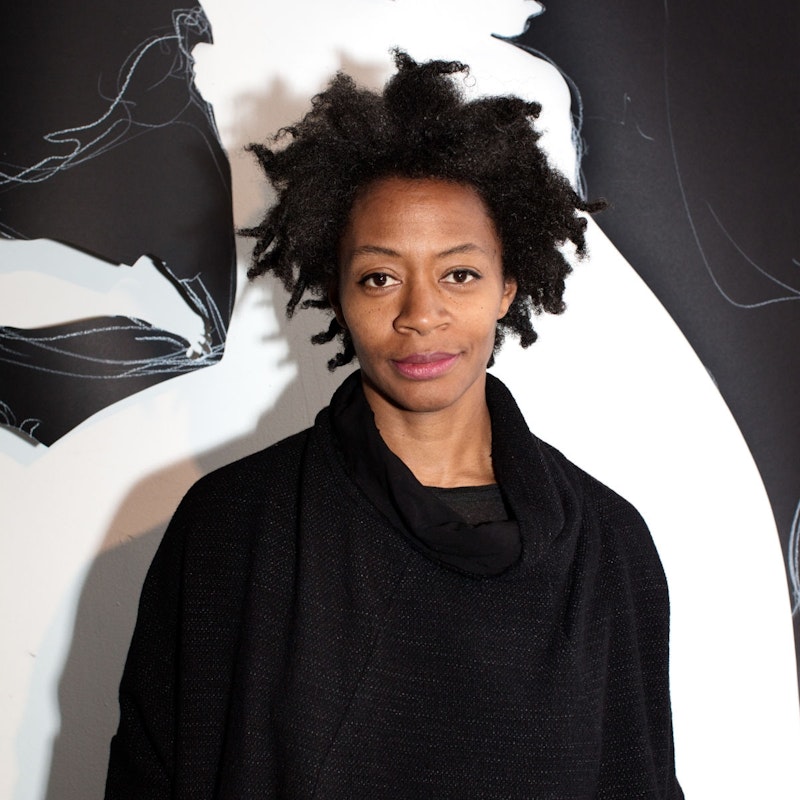Hanif Abdurraqib: My country is my living room or my country is my kitchen or my country is the little shelf I keep my records on. These are my homies.
Kara Walker: Do they reinforce cultural values that set African-Americans back generations, or are they fair-game images that preexist you and me?
Abdurraqib: It’s an exchange, right? That’s what I want to be around.
Walker: A certain moment opens a fissure and all the past comes flooding in.
Abdurraqib: I'm interested in the future of touch.
•••
Walker: I like the clackety-clack of the typewriter. It’s as if it answers. There’s a thought, and you put it down, letter by letter, and it answers back.
Abdurraqib: Oh, yeah. It's like being in a relationship that works for the first time in your life.
Walker: That sounds like love right there to me. It’s sort of jaunty and rolls off the tongue.
Abdurraqib: But when it comes to individual interactions, I want to cultivate a better faith reading of people because I think that was something I was very good at, at one point.
Walker: Yeah, narratives are forever. (laughter) Maybe I’ve over-interpreted it, but I think that Warhol’s sense of shallow is incredibly soulful. It’s open and generous in a dumb kind of way, like, “Here it is!” Yet it’s accepting of its own fallibility and humanity.
•••
Abdurraqib: It was awe.
Walker: Afterward, I was like Joe Cool.
Abdurraqib: I was like, “I'm having so much fun, I feel excited about the book. I feel excited to write it. Every time I finish a piece, I grieve a little bit because I want to stay in it.”
Walker: I’ve definitely laughed or cackled out of absolute surprise at myself, and I have probably cried enough tears to flood the city.
Abdurraqib: I think I’m just obsessed with magic.

